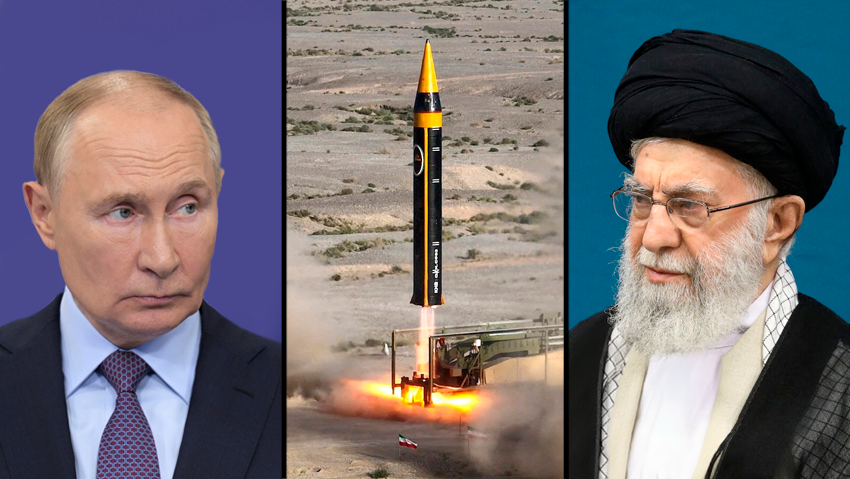Getting your Trinity Audio player ready...
Russia has received ballistic missiles from Iran and will likely use them in Ukraine within weeks, U.S. Secretary of State Antony Blinken said on Tuesday, warning that cooperation between Moscow and Tehran threatens wider European security.
At a news conference in London ahead of a visit to Kyiv he and Britain's Foreign Secretary David Lammy are scheduled make, Blinken said Washington had privately warned Iran that providing ballistic missiles to Russia would be "a dramatic escalation" and said new sanctions would be imposed later on Tuesday.
"Russia has now received shipments with these ballistic missiles, and will likely use them within weeks in Ukraine, against Ukraine," Blinken said, citing intelligence that he said has been shared with U.S. allies and partners around the world.
Blinken said Iran has trained dozens of Russian military personnel to use its Fath-360 close-range ballistic missile system, which has a maximum range of 75 miles.
Russian defense ministry representatives are believed to have signed a contract in December with Iranian officials for the Fath-360 and another Iranian ballistic missile system, Reuters reported last month.
A senior Iranian official on Monday denied reports Iran had supplied Russia with ballistic missiles, describing them as "psychological warfare". Kremlin spokesman Dmitry Peskov declined to confirm the reports but told reporters Russia was cooperating with Iran including on "the most sensitive" areas.
After two-and-a-half years of war, Ukrainian forces now find themselves stretched, fending off a steady Russian advance in Ukraine's east. Last month Kyiv sent troops into Russia on their first large-scale cross-border incursion.
The Iranian missiles can be used on closer targets, allowing Russia to use more of its own arsenal for targets that are further from the front line in Ukraine, Blinken said.
"This development and the growing cooperation between Russia and Iran threatens European security and demonstrates how Iran's destabilizing influence reaches far beyond the Middle East."
Russia, which previously signed up to United Nations restrictions on Iran, was also sharing technology sought by Tehran, he added. "This is a two-way street, including on nuclear issues as well as some space information," Blinken said.
More sanctions on Iran
Iran is already one of the most heavily sanctioned countries in the world, and some experts have questioned the benefit of adding more economic penalties that can hurt the middle class more than the country's leaders.
Additional U.S. sanctions on Iran will include measures against the airline Iran Air, Blinken said.
France, Germany and Britain also issued a joint statement condemning Iran and Russia for what they called an escalation, and pledging to impose sanctions on Iran Air.
Britain announced seven new sanctions designations under its Iran sanctions regime and three under its Russia regime.
Ukraine welcomed further sanctions on Iran over the missiles.
Presidential chief of staff Andriy Yermak reiterated that Kyiv was seeking Washington's permission to use U.S.-supplied weapons deeper inside Russia.
The Biden administration earlier this year relaxed a policy that barred Ukraine from using U.S.-supplied weapons in attacks on targets inside Russia, but officials said those arms were only to be used to hit back against Russian forces attacking or preparing to attack across the border.
"We also need authorization to use Western weapons against military targets on Russian territory, the provision of longer-range missiles, and the enhancement of our air defense systems," Yermak said on X.
Blinken said he would use his visit to Ukraine on Wednesday to hear directly from Ukraine's leadership what their current needs and objectives are and what the U.S. can do to help them.
Blinken and Lammy will visit together in a bid to show united Western support for Kyiv. Blinken will also visit Poland on Thursday, the State Department said.



